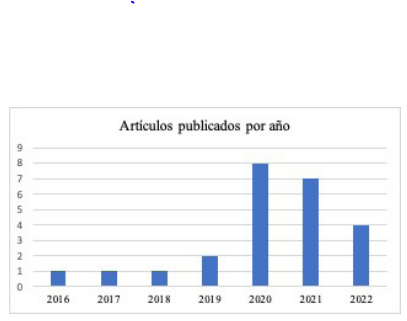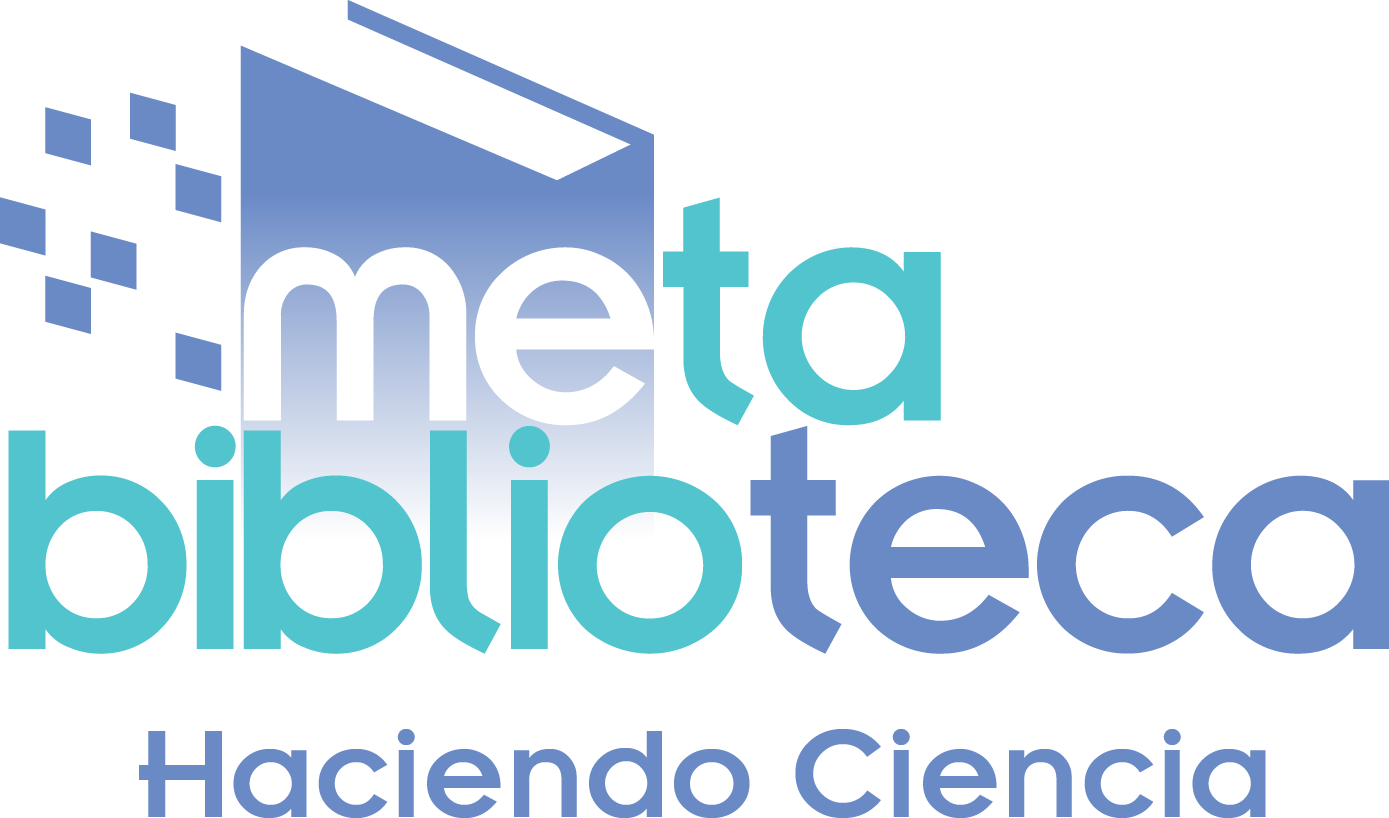Systematic review of the integration and relationship between computational thinking and mathematics in the early years of schooling
Revisión sistemática de la integración y la relación entre el pensamiento computacional y las matemáticas en los primeros años escolares


This work is licensed under a Creative Commons Attribution-NonCommercial-NoDerivatives 4.0 International License.
Copyright statement
The authors exclusively assign to the Universidad EIA, with the power to assign to third parties, all the exploitation rights that derive from the works that are accepted for publication in the Revista EIA, as well as in any product derived from it and, in in particular, those of reproduction, distribution, public communication (including interactive making available) and transformation (including adaptation, modification and, where appropriate, translation), for all types of exploitation (by way of example and not limitation : in paper, electronic, online, computer or audiovisual format, as well as in any other format, even for promotional or advertising purposes and / or for the production of derivative products), for a worldwide territorial scope and for the entire duration of the rights provided for in the current published text of the Intellectual Property Law. This assignment will be made by the authors without the right to any type of remuneration or compensation.
Consequently, the author may not publish or disseminate the works that are selected for publication in the Revista EIA, neither totally nor partially, nor authorize their publication to third parties, without the prior express authorization, requested and granted in writing, from the Univeridad EIA.
Show authors biography
Computational thinking emerges as a field of knowledge due to the increasing importance of technology and computing in today's society. It has been demonstrated that computational thinking can enhance problem-solving abilities by employing techniques from computer science to develop solutions for complex problems. It often involves the application of mathematical principles, such as algebra, geometry, and statistics. Mathematics is fundamental to computational thinking as it provides the theoretical and conceptual foundation for many computer science techniques. Mathematical concepts like functions, sets, and graph theory are essential for understanding algorithms and data structures. The aim of this study was to analyze the integration of mathematics and computational thinking and how this relationship has been measured using both connected and disconnected activities in primary school students. A total of 302 articles were reviewed, applying inclusion and exclusion criteria related to the study's variables of interest. The review found that most articles integrate mathematics and computational thinking based on their interconnectedness, using classroom strategies that support both fields of knowledge. Eleven articles propose activities encompassing four mathematical components (geometric, metric, spatial, and numeric) to address computational thinking, with the geometric component being the most commonly utilized. Only seven articles included students at the 0th grade level, and only two articles worked with populations from Central (Panama) and South America (Uruguay), suggesting that computational thinking is in its early stages in our continent, excluding North American countries where a higher number of articles are reported.
Article visits 209 | PDF visits 129
Downloads
- Barcelos, T., Munoz, R., Villarroel, R., Merino, E. and Silveira, I. (2018) 'Mathematics Learning through Computational Thinking Activities: A Systematic Literature Review', Journal of Universal Computer Science, 24(7), pp. 815–845. Disponible en: https://www.researchgate.net/publication/326894640 (Accedido: 20 junio 2024).
- Barr, V. and Stephenson, C. (2011) 'Bringing-CT-K12-Role-of-CS-Education', ACM Inroads, 2(1), pp. 48–54.
- Bati, K. (2022) 'A systematic literature review regarding computational thinking and programming in early childhood education', Education and Information Technologies, 27(2), pp. 2059–2082. https://doi.org/10.1007/s10639-021-10700-2
- Bordignon, F. and Iglesias, A. (2020) Introducción al Pensamiento Computacional. Universidad Pedagógica Nacional y Educar SE.
- Bråting, K. and Kilhamn, C. (2021) 'Exploring the intersection of algebraic and computational thinking', Mathematical Thinking and Learning, 23(2), pp. 170–185. https://doi.org/10.1080/10986065.2020.1779012
- Chan, S., Looi, C., Ho, W. and Kim, M. (2022) 'Tools and approaches for integrating computational thinking and mathematics: A scoping review of current empirical studies', Journal of Educational Computing Research. https://doi.org/10.1177/07356331221098793
- Cui, Z. and Ng, O.L. (2021) 'The Interplay Between Mathematical and Computational Thinking in Primary School Students’ Mathematical Problem-Solving Within a Programming Environment', Journal of Educational Computing Research, 59(5), pp. 988–1012. https://doi.org/10.1177/0735633120979930
- Durak, H.Y. and Saritepeci, M. (2018) 'Analysis of the relation between computational thinking skills and various variables with the structural equation model', Computers & Education, 116, pp. 191–202. https://doi.org/10.1016/j.compedu.2017.09.004
- Falloon, G. (2016) 'An analysis of young students’ thinking when completing basic coding tasks using Scratch Jnr. on the iPad', Journal of Computer Assisted Learning, 32(6), pp. 576–593. https://doi.org/10.1111/jcal.12155
- Fanchamps, N.L.J.A., Slangen, L., Hennissen, P. and Specht, M. (2021) 'The influence of SRA programming on algorithmic thinking and self-efficacy using Lego robotics in two types of instruction', International Journal of Technology and Design Education, 31(2), pp. 203–222. https://doi.org/10.1007/s10798-019-09559-9
- Ferrada, C.A., Puraivan, E., Silva, F. and Díaz Levicoy, D. (2021) 'Robótica aplicada al aula en Educación Primaria: un caso en el contexto español', Sociología y Tecnociencia, 11(2), pp. 240–259. https://doi.org/10.24197/st.Extra_2.2021.240-259
- Gerosa, A., Koleszar, V., Tejera, G., Gómez-Sena, L. and Carboni, A. (2021) 'Cognitive abilities and computational thinking at age 5: Evidence for associations to sequencing and symbolic number comparison', Computers and Education Open, 2, 100043. https://doi.org/10.1016/J.CAEO.2021.100043
- Gerosa, A., Koleszar, V., Tejera, G., Gómez-Sena, L. and Carboni, A. (2022) 'Educational Robotics Intervention to Foster Computational Thinking in Preschoolers: Effects of Children’s Task Engagement', Frontiers in Psychology, 13. https://doi.org/10.3389/fpsyg.2022.904761
- Goldenberg, E.P. and Carter, C.J. (2021) 'Programming as a language for young children to express and explore mathematics in school', British Journal of Educational Technology, 52(3), pp. 969–985. https://doi.org/10.1111/bjet.13080
- González-González, C.S. (2019) 'State of the art in the teaching of computational thinking and programming in childhood education', Education in the Knowledge Society, 20, pp. 1–17. https://doi.org/10.14201/eks2019_20_a17
- Hickmott, D., Prieto-Rodriguez, E. and Holmes, K. (2017) 'A Scoping Review of Studies on Computational Thinking in K–12 Mathematics Classrooms', Digital Experiences in Mathematics Education, 4(1), pp. 48–69. https://doi.org/10.1007/s40751-017-0038-8
- Israel, M. and Lash, T. (2020) 'From classroom lessons to exploratory learning progressions: mathematics + computational thinking', Interactive Learning Environments, 28(3), pp. 362–382. https://doi.org/10.1080/10494820.2019.1674879
- Jurado, E., Fonseca, D., Coderch, J. and Canaleta, X. (2020) 'Social steam learning at an early age with robotic platforms: A case study in four schools in Spain', Sensors (Switzerland), 20(13), pp. 1–23. https://doi.org/10.3390/s20133698
- Kakavas, P., Holmes, C., Wadhwa, B. and Ugolini, F.C. (2019) 'Computational thinking in primary education: a systematic literature review', Research on Education and Media, 11(2). https://doi.org/10.2478/rem-2019-0023
- Kjällander, S., Mannila, L., Åkerfeldt, A. and Heintz, F. (2021) 'Elementary students’ first approach to computational thinking and programming', Education Sciences, 11(2), pp. 1–15. https://doi.org/10.3390/educsci11020080
- Laurent, M., Crisci, R., Bressoux, P., Chaachoua, H., Nurra, C., de Vries, E. and Tchounikine, P. (2022) 'Impact of programming on primary mathematics learning', Learning and Instruction, 82, 101667. https://doi.org/10.1016/J.LEARNINSTRUC.2022.101667
- Lavigne, H.J., Lewis-Presser, A. and Rosenfeld, D. (2020) 'An exploratory approach for investigating the integration of computational thinking and mathematics for preschool children', Journal of Digital Learning in Teacher Education, 36(1), pp. 63–77. https://doi.org/10.1080/21532974.2019.1693940
- Leung, H.Y.H. (2021) 'Systematic Literature Review of Integrating Computational Thinking into Mathematics Education', US-China Education Review A, 11(4), pp. 152–163. https://doi.org/10.17265/2161-623X/2021.04.002
- Manchado Garabito, R., Tamames Gómez, S., López González, M., Mohedano Macías, L. and Veiga de Cabo, J. (2009) 'Revisiones Sistemáticas Exploratorias Scoping review', Med Segur Trab (Internet), 55(216), pp. 12–19.
- Miller, J. (2019) 'STEM education in the primary years to support mathematical thinking: using coding to identify mathematical structures and patterns', ZDM - Mathematics Education, 51(6), pp. 915–927. https://doi.org/10.1007/s11858-019-01096-y
- Ministerio de Educación Nacional (2006) Documento 3. Estándares Básicos de Competencias en Lenguaje, Matemáticas, Ciencias y Ciudadanas. Bogotá: Ministerio de Educación Nacional de Colombia.
- Moreno-León, J., Román-González, M., García-Perales, R. and Robles, G. (2021) 'Coding to learn Mathematics in 5th grade: Implementation of the ScratchMaths project in Spain', Revista de Educación a Distancia, 21(68). https://doi.org/10.6018/red.485441
- Muñoz, L., Villarreal, V., Morales, I., Gonzalez, J. and Nielsen, M. (2020) 'Developing an interactive environment through the teaching of mathematics with small robots', Sensors (Switzerland), 20(7). https://doi.org/10.3390/s20071935
- Ng, O.L. and Cui, Z. (2020) 'Examining primary students’ mathematical problem-solving in a programming context: towards computationally enhanced mathematics education', ZDM - Mathematics Education, 53(4), pp. 847–860. https://doi.org/10.1007/s11858-020-01200-7
- Nordby, S.K., Bjerke, A.H. and Mifsud, L. (2022) 'Primary Mathematics Teachers’ Understanding of Computational Thinking', KI - Kunstliche Intelligenz, 36(1), pp. 35–46. https://doi.org/10.1007/s13218-021-00750-6
- Özgür, H. (2020) 'Relationships between Computational Thinking Skills, Ways of Thinking and Demographic Variables: A Structural Equation Modeling', International Journal of Research in Education and Science (IJRES), 6(2), pp. 299–314. www.ijres.net
- Rich, K.M., Spaepen, E., Strickland, C. and Moran, C. (2020) 'Synergies and differences in mathematical and computational thinking: implications for integrated instruction', Interactive Learning Environments, 28(3), pp. 272–283. https://doi.org/10.1080/10494820.2019.1612445
- Román, M., Pérez, J.C. and Jiménez, C. (2017) 'Which cognitive abilities underlie computational thinking? Criterion validity of the Computational Thinking Test', Computers in Human Behavior, 72, pp. 678–691. https://doi.org/10.1016/j.chb.2016.08.047
- Scott, C. L. (2015) Investigación y Prospectiva en Educación. El futuro del aprendizaje 2 ¿Qué tipo de aprendizaje se necesita en el siglo XXI?
- Sneider, C., Stephenson, C., Schafer, B. and Flick, L. (2014) 'Computational Thinking in High School Science Classrooms', The Science Teacher, 81(5), pp. 53–60.
- Stigberg, H. and Stigberg, S. (2020) 'Teaching programming and mathematics in practice: A case study from a Swedish primary school', Policy Futures in Education, 18(4), pp. 483–496. https://doi.org/10.1177/1478210319894785
- Subramaniam, S., Maat, S. M. and Mahmud, M. S. (2022) 'Computational thinking in mathematics education: A systematic review', Cypriot Journal of Educational Sciences, 17(6), pp. 2029–2044. https://doi.org/10.18844/CJES.V17I6.7494
- Sung, W. and Black, J. B. (2020) 'Factors to consider when designing effective learning: Infusing computational thinking in mathematics to support thinking-doing', Journal of Research on Technology in Education, 53(4), pp. 404–426. https://doi.org/10.1080/15391523.2020.1784066
- Urrútia, G. and Bonfill, X. (2010) 'PRISMA declaration: A proposal to improve the publication of systematic reviews and meta-analyses', Medicina Clinica, 135(11), pp. 507–511. https://doi.org/10.1016/j.medcli.2010.01.015
- Wang, J., Zhang, Y., Hung, C. Y., Wang, Q. and Zheng, Y. (2022) 'Exploring the characteristics of an optimal design of non-programming plugged learning for developing primary school students’ computational thinking in mathematics', Educational Technology Research and Development, 70(3), pp. 849–880. https://doi.org/10.1007/S11423-022-10093-0/TABLES/7
- Weintrop, D., Beheshti, E., Horn, M., Orton, K., Jona, K., Trouille, L. and Wilensky, U. (2016) 'Defining Computational Thinking for Mathematics and Science Classrooms', Journal of Science Education and Technology, 25(1), pp. 127–147. https://doi.org/10.1007/S10956-015-9581-5
- Wing, J. (2006) 'Computational Thinking'. Available at: https://www.cs.princeton.edu/~chazelle/courses/BIB/jeannette-wing.pdf
- Wing, J. M. (2008) 'Computational thinking and thinking about computing', Philosophical Transactions of the Royal Society A: Mathematical, Physical and Engineering Sciences, 366, pp. 3717–3725. https://doi.org/10.1098/rsta.2008.0118
- Xu, W., Geng, F. and Wang, L. (2022) 'Relations of computational thinking to reasoning ability and creative thinking in young children: Mediating role of arithmetic fluency', Thinking Skills and Creativity, 44, 101041. https://doi.org/10.1016/J.TSC.2022.101041
- Zapata-Ros, M. (2018) 'Pensamiento computacional. Una tercera competencia clave. (I)', Blog RED El Aprendizaje En La Sociedad Del Conocimiento. Available at: https://red.hypotheses.org/1059




